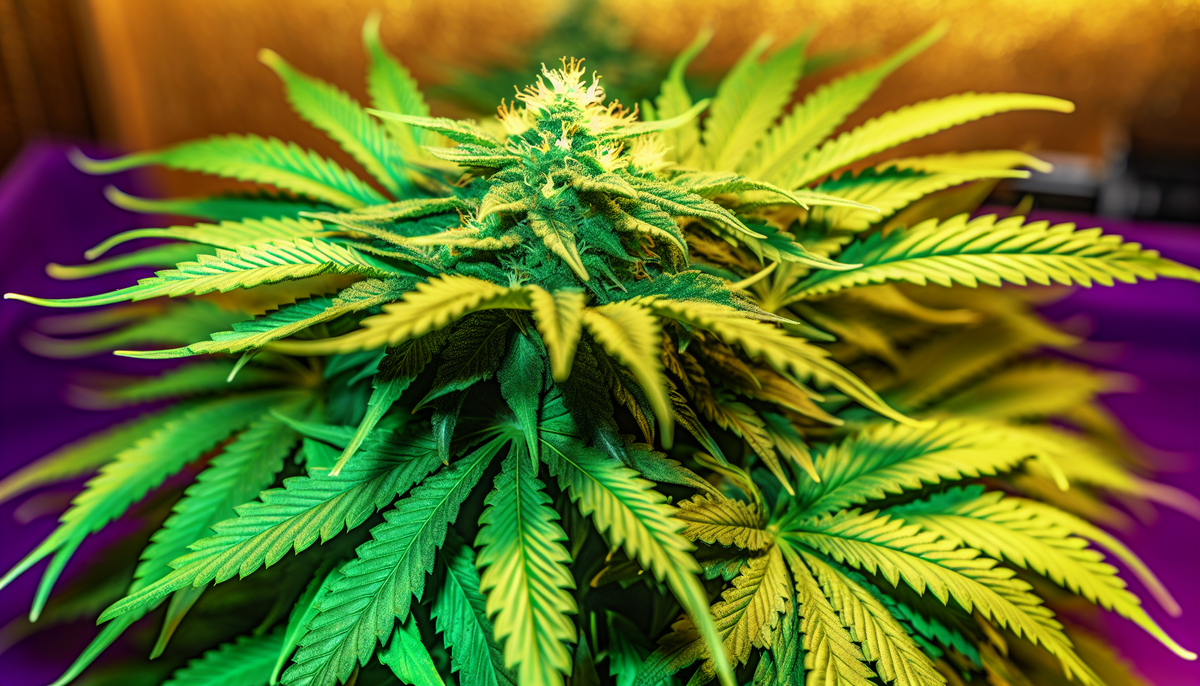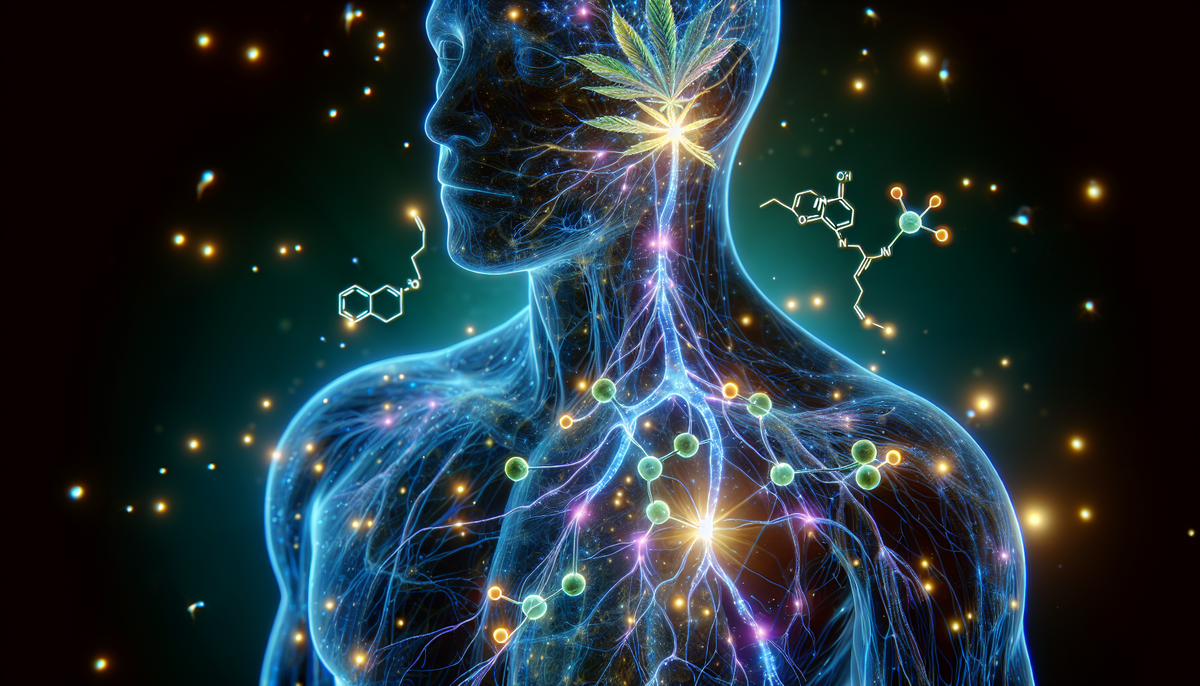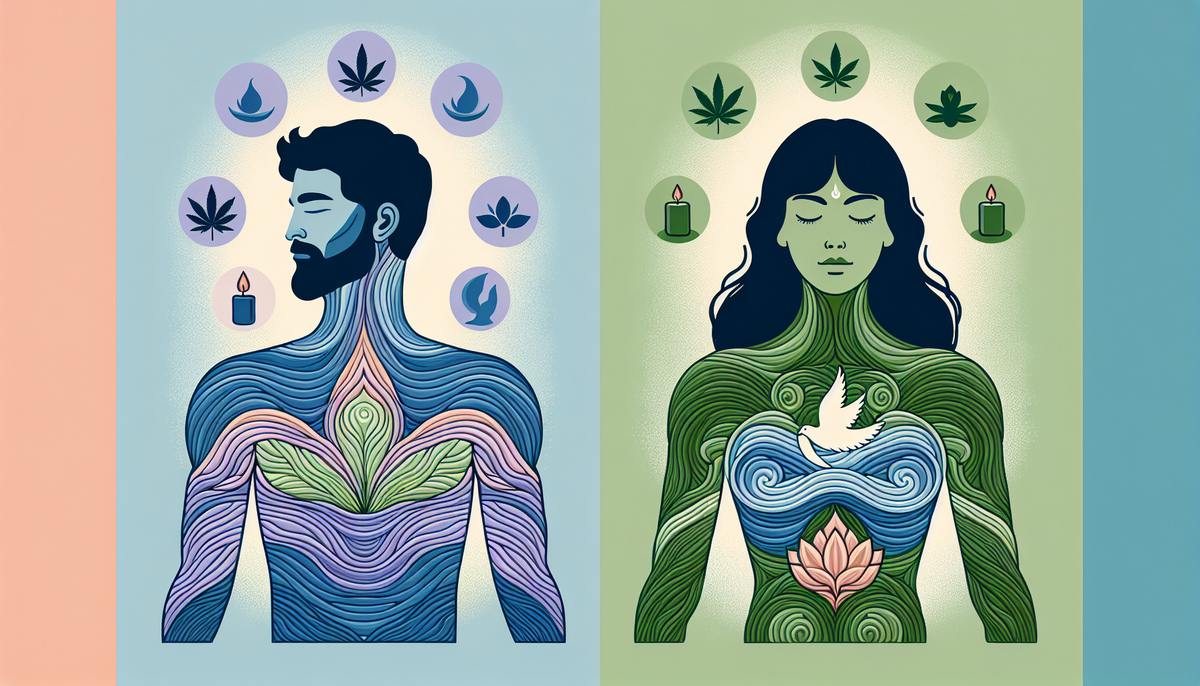Exploring CBD vs CBG for Anxiety: Which Is More Effective?
Written by: Daniel Fayad, Subject Matter Expert and Website President
Published: March 15, 2024; Last updated: April 6, 2024
- 1. Key Takeaways
- 2. Understanding CBD and CBG
- 3. Anxiety and the Endocannabinoid System
- 3.1 How CBD affects anxiety
- 3.2 How CBG affects anxiety
- 4. Comparing CBD and CBG for Anxiety Relief
- 5. Side Effects and Safety Considerations
- 6. Dosage and Administration
- 7. Combining CBD and CBG for Anxiety
- 8. Choosing the Right Product: CBD vs CBG
- 9. Real-Life Experiences: Testimonials and Case Studies
- 10. Ongoing Research and Future Developments
- 11. Summary
- 12. Frequently Asked Questions
- 12.1 Does CBG oil calm anxiety?
- 12.2 Do CBG and CBD make you sleepy?
- 12.3 What level of CBD is good for anxiety?
- 12.4 What is CBC for anxiety?
- 12.5 What are the differences between CBD and CBG?
- 12.6 Does CBD help with inflammatory bowel disease?
- 12.7 Do both CBD and CDG come from the cannabis plant?
- 13. References
Choosing between CBD and CBG for anxiety relief can be perplexing. This article straightforwardly compares the two, shedding light on their respective strengths and helping you pinpoint the better option for easing anxiety, focusing on the topic of CBD vs CBG for anxiety.
Key Takeaways
CBD and CBG are non-psychoactive cannabinoids from the cannabis plant, with CBD primarily affecting inflammation and pain responses, while CBG promotes neurological health and has potential neuroprotective properties.
CBD and CBG interact with the endocannabinoid system, affecting neurotransmitters like serotonin and GABA to regulate mood and anxiety; CBD is known for its calming effects, while CBG may have more energizing and focus-enhancing properties.
While both CBD and CBG show promise for anxiety relief, they each have their side effects and potential drug interactions. Thus, proper dosage and administration are crucial for minimizing risks and maximizing benefits.
Understanding CBD and CBG

CBD and CBG, two powerful components derived from the cannabis plant, have been making waves in the world of wellness. CBD, a major cannabinoid known for supporting health inflammatory and pain responses, is commonly found in hemp plants. On the other hand, CBG, a minor cannabinoid, is recognized for promoting neurological health. It’s often referred to as the ‘mother of all cannabinoids’ due to its role in deriving other cannabinoids such as CBD and THC.
Despite their differences, CBD and CBG share a common characteristic – they both lack psychoactive properties, meaning they do not cause a ‘head-high’ effect like THC. This non-intoxicating feature makes them a preferred choice for individuals seeking the therapeutic benefits of cannabis without the mind-altering effects.
CBD and CBG are derived from strains of the cannabis plant, including the hemp plant. In particular, CBG is specifically bred from CBG hemp for increased CBG levels. These cannabinoids have distinct properties, with CBG known for its energizing effects and potential neuroprotective properties. CBD oil, on the other hand, is another popular product derived from the cannabis plant.
Keep in mind that, when sourced from hemp crops, CBG is legal and thus easily accessible for those interested in its benefits. However, as the cannabis plant matures and produces more cannabinoids, grasping how CBD and CBG interact with our bodies and the potential benefits they offer to our nervous system becomes even more significant.
Anxiety and the Endocannabinoid System

Now, we’ll examine in greater depth the function of the endocannabinoid system in anxiety and the alleviation of its symptoms through the use of CBD and CBG. The endocannabinoid system plays a crucial role in our bodies, and cannabinoids like CBD and CBG interact with it in unique ways to help manage anxiety.
How CBD affects anxiety
CBD interacts with the CB2 receptors of the endocannabinoid system ¹, influencing neurotransmitters such as serotonin, which play a crucial role in anxiety regulation and mental health. By hindering the degradation of the endocannabinoid system, CBD aids in maintaining psychological and physical homeostasis, a critical factor in managing anxiety.
The anxiolytic actions of CBD stem from its neurobiological effects, which include reducing amygdala activity, increasing prefrontal cortex activation, and decreasing subjective anxiety and blood flow in specific brain regions. These effects are due to the cannabinoids present in CBD.
Moreover, CBD has the potential to:
Prevent the increase in anxiety
Promote hippocampal AEA, a neuromodulatory lipid, in individuals experiencing chronic stress
Elevate serotonin levels, indicating its potential to contribute to the treatment of depression, anxiety, and inflammatory bowel disease in a manner akin to antidepressants.
How CBG affects anxiety
Turning our attention to CBG, it interacts with serotonin and GABA neurotransmitters, which play a crucial role in regulating mood and anxiety. CBG binds to the CB receptors in the brain, controlling the release of neurotransmitters and assisting in mood improvement, anxiety reduction, and the promotion of relaxation. ¹
CBG’s interaction with cannabinoid receptors, specifically CB1 and CB2 receptors, contributes to anxiety relief by regulating endocannabinoid signaling, which shares a similar mechanism of action with CBD, aiding in mood regulation and stress response. This interaction may also be beneficial for neurological disorders.
The unique properties of CBG and how it interacts with the body’s endocannabinoid system make it a promising candidate for managing anxiety and stress, all without the psychoactive effects of THC.
Comparing CBD and CBG for Anxiety Relief

When it comes to treating anxiety, both CBD and CBG exhibit potential. CBG, known for its energizing and uplifting effects, could be beneficial for anxiety that hinders action. On the contrary, CBD is commonly linked to calming and sleep-supportive properties, making it an excellent choice for those wanting to unwind and relax.
CBG’s interaction with various receptors in the brain suggests it may offer distinct advantages over CBD for anxiety relief. In the ongoing debate of CBG vs CBD, it’s important to note that CBG is more effective for energizing and uplifting effects that improve focus and productivity. This effectiveness is due to the unique properties of cannabis plants that produce CBG.
Both CBG and CBD have their unique applications for daytime and nighttime anxiety. CBG is considered a better option for general use, particularly during the daytime when concentration and focus are needed. On the other hand, CBD is often preferred for supporting sleep and may be more suitable for managing anxiety before bedtime.
Side Effects and Safety Considerations

Despite the potential benefits of CBD and CBG for anxiety, it’s paramount to consider their possible side effects and safety implications. Both CBD and CBG can lead to common side effects such as:
dry mouth
drowsiness
diarrhea (CBD)
low blood pressure (CBG)
These effects should be considered when using these substances, as they can have distinct bodily impacts.
Both CBD and CBG can potentially interfere with the metabolism of other drugs processed by cytochrome P450 enzymes, which is how CBG interacts with these enzymes. Hence, consulting healthcare providers regarding potential drug interactions is a vital step.
One crucial strategy for minimizing the risk of side effects is to focus on proper dosing. By meticulously adjusting and following the recommended dosage, it’s possible to prevent most, if not all, side effects.
Dosage and Administration
Identifying the correct dosage and administration method for CBD and CBG is critical to successfully relieving anxiety. The recommended approach to finding the proper CBG dosage for anxiety is to start with a low dose, such as 0.25 milligrams (mg), and then gradually increase it until the desired effect is achieved. Similarly, the suggested initial dosage of CBD for anxiety relief is 10 to 20 mg per day. ²
To facilitate faster absorption when addressing anxiety, it’s advisable to place CBG oil under the tongue for approximately 30 seconds before swallowing. However, be aware that the absorption of CBG in pill form can vary, and its effectiveness may be impacted by other concurrent consumption of foods and liquids.
Combining CBD and CBG for Anxiety
You might question if CBD and CBG can be consumed together. Co-ingestion of CBD and CBG is not only safe but also more beneficial than individual consumption. This combination can offer an enhanced range of health benefits thanks to a phenomenon known as the entourage effect.
The entourage effect refers to the synergistic interaction of cannabinoids, whereby the therapeutic benefits of the individual cannabinoids are amplified when they are used together. Therefore, combining CBD and CBG could potentially offer heightened anxiety relief.
However, understanding your body’s unique response to these cannabinoids is vital. The combination should be tailored to your needs for optimal anxiety relief.
Choosing the Right Product: CBD vs CBG
In selecting the appropriate product, considering your needs and preferences is crucial. A wide variety of products are available for individuals seeking CBD or CBG anxiety relief. Some factors to consider when choosing a product include:
The concentration of CBD or CBG in the product
The method of consumption (e.g., oil, capsules, gummies)
The presence of any additional ingredients or flavors
The reputation and credibility of the brand
Choosing credible brands for purchasing CBD or CBG oils is paramount as it ensures transparent business practices and reliable customer service.
It’s also important to note that products such as Neurogan’s CBG contain less than 0.3% THC in their full-spectrum CBG formulation, which is significant for individuals who are mindful of THC exposure. To maximize the efficacy of CBG and CBD products, conducting extensive research and strictly following the usage instructions provided is recommended.
Real-Life Experiences: Testimonials and Case Studies
Personal experiences and case studies provide valuable insights into the effectiveness of CBD and CBG in treating anxiety. For instance, some individuals have reported feeling calmer and more relaxed, improved sleep, and reduction of anxiety with CBD use.
Similarly, testimonials from individuals who have used CBG have pointed out its potent anxiolytic properties, which may contribute to muscle relaxation and reduction of symptoms related to OCD and ADHD. Numerous users have shared that they have noticed a noteworthy decrease in their anxiety levels upon integrating CBG into their daily regimen.
These firsthand accounts provide compelling evidence suggesting CBG’s potential in effectively managing anxiety symptoms, thus presenting a safe and promising alternative for those seeking anxiety relief.
Ongoing Research and Future Developments
Research into CBD and CBG’s potential for anxiety relief is ongoing, and recent developments show promise. Various studies have indicated that CBD may be effective in reducing anxiety, with early trial data and clinical trials offering promising results.
Similarly, recent research on CBG for anxiety treatment has demonstrated its potential in reducing intraocular pressure, as well as showcasing antioxidant and anti-inflammatory properties. Furthermore, CBG may be beneficial in addressing brain disorders like stress and anxiety, indicating its potential for anxiety relief.
As cannabinoid research continues to evolve, CBG is acknowledged as a potential cannabinoid for addressing anxiety and depression. However, further extensive research is necessary to comprehensively grasp its mechanisms and impacts on the human body, indicating a possible area for future advancements.
Summary
In conclusion, both CBD and CBG offer potential benefits for anxiety relief. Both cannabinoids interact with the body’s endocannabinoid system in unique ways to help manage anxiety. Whether you choose CBD or CBG for anxiety relief, it’s essential to understand their potential benefits, side effects, and recommended doses.
While research into CBD and CBG’s effectiveness for anxiety relief is ongoing, the current evidence suggests that both cannabinoids offer potential benefits. As we continue to learn more about these potent cannabinoids, they may provide promising options for those seeking natural anxiety relief.
Frequently Asked Questions
Does CBG oil calm anxiety?
Yes, CBG has been reported to be effective in reducing anxiety, with users finding it more effective than conventional medicines.
Do CBG and CBD make you sleepy?
Both CBG and CBD have been found to be effective sleep aids. Research supports their potential to improve sleep quality.
What level of CBD is good for anxiety?
The recommended dosage of CBD for anxiety is 300 to 600 mg. It’s essential to consult with a healthcare professional before starting any CBD regimen.
What is CBC for anxiety?
CBC may be nearly ten times as effective as CBD for relieving pain, anxiety, and inflammation due to its binding with cannabinoid receptors linked to how we experience pain.
What are the differences between CBD and CBG?
The main difference between CBD and CBG is that CBD is known for supporting healthy inflammatory and pain responses, while CBG is known for promoting neurological health. Therefore, they have different potential benefits for the body.
Does CBD help with inflammatory bowel disease?
CBD (cannabidiol) has shown promise in preclinical and early clinical studies as a potential treatment for inflammatory bowel disease (IBD), which includes conditions like Crohn’s disease and ulcerative colitis.
Do both CBD and CDG come from the cannabis plant?
Yes, both CBD (cannabidiol) and CBG (cannabigerol) are cannabinoids that are naturally derived from the cannabis plant, specifically from varieties of the Cannabis sativa species. These cannabinoids are among the many chemical compounds found in cannabis, and they interact with the body’s endocannabinoid system, which plays a role in regulating various physiological processes.
References
Behl, T., Makkar, R., Sehgal, A., Singh, S., Makeen, H. A., Albratty, M., Alhazmi, H. A., Meraya, A. M., & Bungau, S. (2022). Exploration of Multiverse Activities of Endocannabinoids in Biological Systems. International journal of molecular sciences, 23(10), 5734. https://doi.org/10.3390/ijms23105734
Mendiguren, A., Aostri, E., Rodilla, I., Pujana, I., Noskova, E., & Pineda, J. (2023). Cannabigerol modulates α2-adrenoceptor and 5-HT1A receptor-mediated electrophysiological effects on dorsal raphe nucleus and locus coeruleus neurons and anxiety behavior in rat. Frontiers in pharmacology, 14, 1183019. https://doi.org/10.3389/fphar.2023.1183019
Russo, E. B., Cuttler, C., Cooper, Z. D., Stueber, A., Whiteley, V. L., & Sexton, M. (2022). Survey of Patients Employing Cannabigerol-Predominant Cannabis Preparations: Perceived Medical Effects, Adverse Events, and Withdrawal Symptoms. Cannabis and cannabinoid research, 7(5), 706–716. https://doi.org/10.1089/can.2021.0058

Written by Daniel Fayad - Subject Matter Expert and Website President
Dan Fayad is a results-driven healthcare administration expert and content writer. With a Master of Health Administration from the University of Southern California, he’s carved a niche for himself in the dynamic world of healthcare and business development. Dan uses his experience to educate and empower people on their wellness journeys.
Join the CBDeals Club!
Get 10% off your first order and receive our best and exclusive promotions directly to your inbox!

